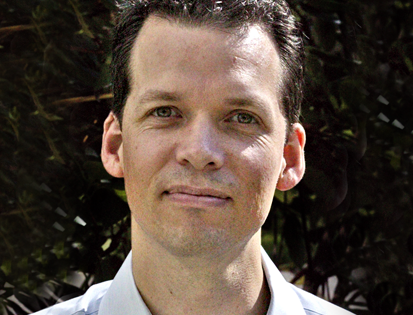The leader of an international team of genetics researchers is seething after a journal responded to critical tweets about their paper by issuing an expression of concern.
The article, “Exome sequencing in multiple sclerosis families identifies 12 candidate genes and nominates biological pathways for the genesis of disease,” was published in PLOS Genetics in early June 2019 by a group led by Carles Vilariño-Güell, of the Department of Medical Genetics at the University of British Columbia in Vancouver.
Less than a week after publication, according to Vilariño-Güell, the journal notified him that:
There are 93 tweets in the conversation about the paper started by Daniel MacArthur. It is overwhelmingly negative towards the journal and paper. In addition to MacArthur (32.9k followers) weighing in, other names and influencers including Jeffrey Ross-Ibarrra (UC Davis, 6.2k followers), Heidi Rehm (Mass General, 4.4k followers), Manuel Rivas (Stanford, 2.2k followers), etc. One positive tweet appears responding to PLOS Genetics’ own coverage of this paper.
The Twitter storm precipitated months of back-and-forth between the journal and Vilariño-Güell et al, which he lays out in this submission to PLOS Genetics, titled “Science by tweet: unethical practices at PLOS Genetics,” which he posted online at ResearchGate but has not yet been accepted for publication in the journal. Prior to that submission, the exchange culminated in an editorial and this statement:
The editors of PLOS Genetics are issuing this expression of concern to alert readers to questions about the validity of some statements in the article authored by Carles Vilariño-Güell and colleagues [1].
Shortly after the article was published, readers contacted the journal with concerns regarding the soundness of the research described and the rigor of the editorial process. Internal investigation of the review and editorial process of the manuscript revealed no evidence of scientific misconduct or conflict of interest. However, it was noted by the editors involved in the investigation that there were important discrepancies between the actual results and the claims that were made in parts of the manuscript. Because those discrepancies had the potential to introduce errors in clinical genetic test interpretation and cause harm, the journal contacted the authors to request that they consider issuing corrections to two sentences in the Abstract, two sentences in the Author summary, and one sentence in the Discussion.
Responding on behalf of the authors, Carles Vilariño-Güell, the corresponding author, did not agree to the requested corrections. In the editors’ opinion these corrections were required to prevent potential harm. The authors and their institution have been made aware of this Expression of Concern and the journal has initiated a more extensive examination of the review and editorial process. The outcome of these inquiries will determine whether further action is required. The editors involved in issuing this Expression of Concern have also authored an Editorial [2] providing additional information.
‘Simply engaging in story-telling’
The thread in question appears to have vanished. MacArthur, who directs the Broad Institute’s Program in Medical and Population Genetics, told us he doesn’t remember deleting it, but that:
I do remember that the tweet referred to statements made in the paper that exaggerated the significance of the authors’ findings, and I believe I said something to the effect of this language not being acceptable in human genetics in 2019. I completely stand by that sentiment.
What I objected to in the tweet was the inappropriately strong causal language in the paper, which suggested that in these families, “the cause of multiple sclerosis can be largely attributed to a single genetic variant that is transmitted through generations” – there’s not even close to enough evidence in the paper to justify this kind of language.
Fifteen years ago it might have been possible to get away with this kind of statement, but we now have large databases of sequenced individuals that have taught us how common it is to see rare, potentially interesting variants segregating in a family by chance. As a result, the American College of Medical Genetics has defined stringent criteria for establishing genetic variants as likely disease-causing, which are now employed by virtually all clinical diagnostic labs and most research groups. This paper doesn’t even attempt to employ those criteria, and I don’t believe any of the variants proposed in the paper would meet them. Without such objective criteria the authors are simply engaging in story-telling.
Vilariño-Güell said:
I would argue that anyone who works on common complex adult onset diseases would agree that there is not such a thing as a 100% penetrant mutation, but clearly some people do not agree. Or as we indicated in the discussion:
“Although these genes provide a mechanistic insight into the etiology of disease, it should be noted that not all family members harboring the nominated disease-causing variants developed MS (Fig 2). Therefore, despite the highly susceptible genetic background created by these variants, additional genetic, epigenetic or environmental factors are likely required to trigger the onset of MS.”
Vilariño-Güell notes that this was not the first time that MacArthur had criticized his team’s work on Twitter. In another case, involving a different journal, according to Vilariño-Güell,
Neuron editors contacted Daniel MacArthur and requested a Matters Arising communication describing their criticisms and concerns. We received this letter and provided the editors with a response. Both documents were then peer reviewed, revised, and published side by side with an Editorial Note describing the process and reasons for their publication [10-12]. PLOS Genetics editors refused to take this route.
As Vilariño-Güell adds in his unpublished paper:
Although PLOS Genetics editors have reiterated … “we found no evidence of scientific misconduct or conflicts of interest during the review or editorial process, and we uncovered no concerns about the integrity of the data itself”; they decided to published two editorials on our study in response to twitter criticism. We do not consider the editors’ argument for the publication of their editorials valid, nor twitter an appropriate means for scientific review. Thus, in our opinion, the editors’ actions are not only inappropriate but unethical. Publication of Letters of Concern and Author’s Responses is an essential tool for scientific discourse [10-12], but this is not what occurred in this instance. Applying pressure to authors with the goal of forcing them to publish an unnecessary Erratum in response to unsupported twitter criticism is an unethical practice that undermines the entire scholarly peer-review process.
A spokesperson for PLOS told us:
The decision to issue an Expression of Concern on this manuscript was reached after careful consideration and consultation with the Editors in Chief and relevant expert Editors on the journal. As stated in the Expression of Concern and in the accompanying Editorial, (https://journals.plos.org/plosgenetics/article?id=10.1371/journal.pgen.1008437), the reason for our actions is that language in the publication could be misinterpreted by patients or healthcare providers thereby causing potential harm. The Expression of Concern is an interim step, and the results of a fuller evaluative process that has been initiated will be provided to the authors and the community as part of our commitment to transparency.
MacArthur stands by his handling of the matter:
Critical social media commentary can indeed be painful. If the authors wish to avoid it in future, my suggestion would be that they stop making wildly exaggerated claims about variant causality in their published work, and start applying the criteria the community has defined to investigate such claims.
Like Retraction Watch? You can make a tax-deductible contribution to support our work, follow us on Twitter, like us on Facebook, add us to your RSS reader, or subscribe to our daily digest. If you find a retraction that’s not in our database, you can let us know here. For comments or feedback, email us at [email protected].


There is nothing about Twitter that disqualifies it as a means of scientific communication. One can link to a long article within a tweet, so the length of the actual tweet doesn’t matter. It is a means to get a message to the the recipient quickly.
The big issue here is the “influencer”. Just because that person has more followers should not make their opinion any stronger. That is what I am seeing and I think this is a big issue for a journal to be considerate of. In this case PLOS genetics seemed to cave to these influencers, which is not how science is done whether they were correct or not. I think PLOS genetics should be ashamed of this, the influencer should be ashamed of this and if the authors really did over state, they should also be ashamed. There are no winners here, including the scientific community.
What has happened is entirely unethical. Tweeter is not part of the formal process for addressing any concern about published work. Concerns, when arising must be properly reported and recorded, so the matter can be investigated properly and the record corrected if that is needed.
Making these statements on Tweeter are damaging should the person targeted be innocent of wrong-doing. It amounts to bullying and vilification in the public sphere via mass social media.
People engaging in this kind of action, aka MacArthur in this case are just trolls actively destroying other people’s career without the need of disclosing any conflict of interest. The law allows for these people to be answerable for such actions using social media.